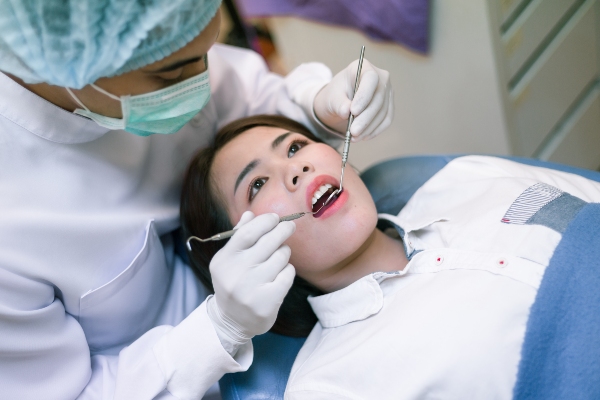Sedation Dentistry: Oral Sedative FAQs

If you have an upcoming dental procedure, sedation dentistry can help you manage any pain and discomfort you would otherwise feel. You do not have to experience this sort of discomfort. Talk to your dentist today about whether the office offers sedation methods. As you understand how this works, you can feel at ease going into your treatment.
Typical procedures where people want sedation
Everyone handles pain and discomfort differently. Some people have fears about going to the dentist’s office and need extra help staying calm. Many patients seek sedation dentistry for invasive procedures such as root canals and placement of bridges and dental crowns. Other people may want to use sedation methods for more minor procedures such as a cavity filling.
What are the different types of sedation?
When an office offers sedation dentistry, there are typically up to three types available. Some dentists may use only one or two. IV sedation delivers drugs intravenously to help put the patient to sleep during a procedure. Oral sedation is also common. With this approach, the dentist will give the patient a pill to render the person asleep. It works in a matter of a few minutes.
The third kind is through inhalation. The dentist may use a nitrous gas to calm and relax the patient. The dentist delivers it through a mask, which the patient will wear throughout the procedure. This sedation does not make the person unconscious but gives the patient a sense of euphoria. The patient will still be aware of what is happening.
How long does it take?
The sedation dentistry methods will vary in length. The effects can last anywhere from an hour or less to several hours. This will depend on the type of treatment the person is undergoing. The dentist has the knowledge and training to give the patient the right amount of sedation medication or gas.
What are the side effects?
As with any treatment or drug, sedation dentistry has some possible negative effects. The dentist will make these clear to the patient before the process begins. The person may have a headache or experience nausea once the sedation wears off. There can also be dryness in the mouth. Most patients will feel groggy afterward and may have difficulty remembering the procedure for a time.
What happens after a sedation dentistry office uses one of these methods?
The patient should arrange to have someone else take them home. Once at home, the patient should rest for the next several hours. If possible, do not do anything that requires heavy physical exertion. It is a good idea for someone to be close to the patient to monitor any adverse reactions.
A good choice to manage pain
If you are worried about what is in store for you at the dentist’s office, you should explore your options with sedation. With sedation dentistry, you can avoid pain and discomfort and be at ease during the dental procedure. Make an appointment today. Then discuss which process makes the most sense for you.
Request an appointment here: https://www.sacramentosleepdentist.com or call Dental Excellence of Greenhaven at (916) 293-0504 for an appointment in our Sacramento office.
Check out what others are saying about our dental services on Google: Sedation Dentist in Sacramento, CA.
Recent Posts
Are you concerned about whether or not you will receive painless dentistry at your next appointment? You aren't alone. In fact, many people every year simply avoid the dentist altogether out of fear that they will have a painful experience. Unfortunately, for some people, they have already had a negative experience, so it's even more…
If you find yourself scared of visiting the dentist or undergoing dental procedures, you might benefit from sedation dentistry. Most people dealing with dental anxiety would rather endure pain from dental issues instead of meet with the dentist. Sedation dentistry can help you deal with your dental fears and relax in the dentist's chair. The…
Dental anxiety is a common issue that affects people of all ages. This term refers to the fear, anxiety, or stress of dental visits. There are several misconceptions about dental anxiety, leading to additional fear or avoidance of necessary dental care. By separating facts from fiction, patients can better understand this condition and go to…
Dental anxiety affects millions of people in the U.S. This anxiety can often prevent patients from getting treatments that can keep oral diseases like tooth decay and gum disease away or prevents them from getting worse. Dental phobias can be the result of previous bad experiences with dentists, or they can be caused by a…


